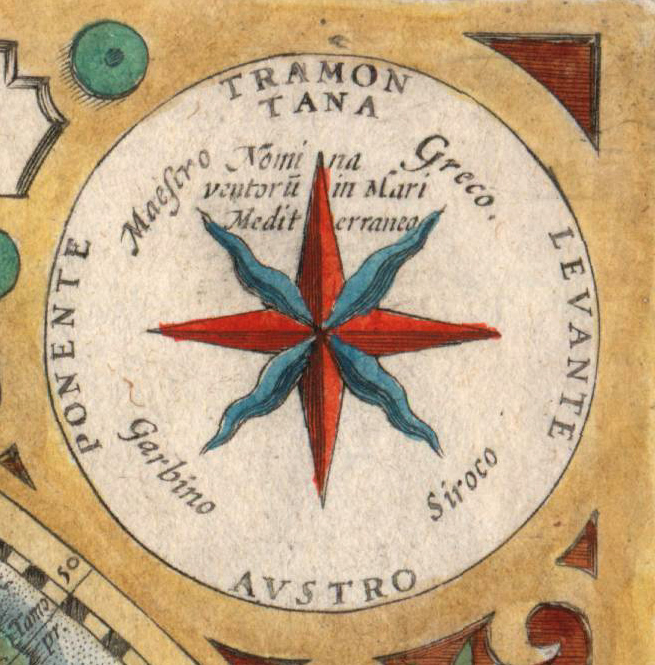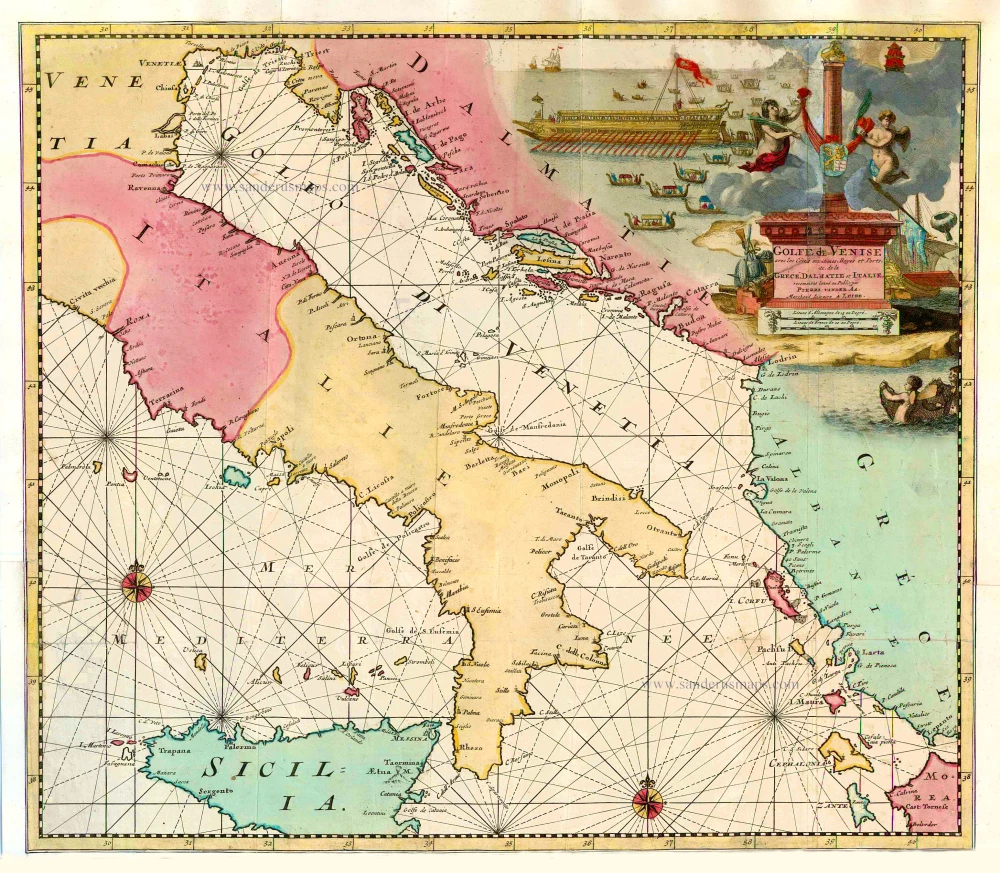
MA IN ADRIATIC STUDIES
THE ADRIATIC:
REGIONALITY, TERRITORIALITY, MOBILITY
(14th – 18th CENTURIES)
The MA in Adriatic Studies is a dynamic and forward-thinking program designed to provide students with a deep and nuanced understanding of the Adriatic region through an interdisciplinary lens. By integrating history, anthropology, environmental studies, geography and history of art, the program offers a comprehensive and holistic view of the region’s past and present. Students benefit from real-world engagement through fieldwork opportunities, hands-on seminars, and collaborations with local institutions and organizations.
These experiences not only enhance academic learning but also connect students directly with the cultural and social realities of the Adriatic. Guided by a team of expert faculty, including leading scholars and practitioners, the program emphasizes innovative research and teaching methods. Students are encouraged to explore new perspectives and contribute to emerging discussions in the field.
Whether you’re aiming to deepen your academic knowledge, broaden your cultural and historical understanding, or take the next step in your professional journey, this MA offers a valuable foundation. It equips students with critical thinking skills, regional expertise, and interdisciplinary tools that can open doors to careers in research, education, policy making, cultural management, and beyond.
The program also offers flexible learning options, including distance learning, making it accessible to students across the globe. Whether based in the region or abroad, students can fully engage with the curriculum and community, ensuring a rich and inclusive academic experience.
Join us
to develop the expertise essential for impacting academia,
policy-making, and international collaboration.
Embrace
Adriatic Studies and expand your career and personal growth.
Our Purpose
The MA Program in Adriatic Studies extends beyond the mere history of the Adriatic Sea. It is not confined to a static portrayal of the past. Instead, it integrates multiple disciplines—history, anthropology, linguistics, art history, and political science—to refresh our understanding of the Adriatic region and to establish a distinct model of regional studies. Exploring the past means understanding why the present is shaped as it is. To achieve this, we employ three different perspectives: a comprehensive view of the entire region (regional), an appreciation of the specific features that make up the whole (territorial), and an awareness of movement, exchange, and overlooked connections (mobility).

*
The Adriatic Studies program is ambitious, innovative, and long reaching. In line with this vision, one of our goals is to foster the creation of an international research network dedicated to the Adriatic Sea, using the three-perspective approach and the idea of the dynamic development of past societies on multiple levels.
In this effort, we seek and find partners: institutions that provide knowledge and expertise, educators with a vision for collaboration and interdisciplinary research, and students who are eager to embrace the challenge of learning.
Why Study With Us
MA IN ADRIATIC STUDIES
THE ADRIATIC:
REGIONALITY, TERRITORIALITY, MOBILITY
(14th – 18th CENTURIES)
The MA in Adriatic Studies is a dynamic and forward-thinking program designed to provide students with a deep and nuanced understanding of the Adriatic region through an interdisciplinary lens. By integrating history, anthropology, environmental studies, geography and history of art, the program offers a comprehensive and holistic view of the region’s past and present. Students benefit from real-world engagement through fieldwork opportunities, hands-on seminars, and collaborations with local institutions and organizations.
These experiences not only enhance academic learning but also connect students directly with the cultural and social realities of the Adriatic. Guided by a team of expert faculty, including leading scholars and practitioners, the program emphasizes innovative research and teaching methods. Students are encouraged to explore new perspectives and contribute to emerging discussions in the field.
Whether you’re aiming to deepen your academic knowledge, broaden your cultural and historical understanding, or take the next step in your professional journey, this MA offers a valuable foundation. It equips students with critical thinking skills, regional expertise, and interdisciplinary tools that can open doors to careers in research, education, policy making, cultural management, and beyond.
The program also offers flexible learning options, including distance learning, making it accessible to students across the globe. Whether based in the region or abroad, students can fully engage with the curriculum and community, ensuring a rich and inclusive academic experience.
Key information
| Program duration: | Four semesters – two years |
| Candidates accepted from: | Humanities, Social sciences, Political science, Economics, Law |
| Tuition and thesis language: | English |
| Application period: | May 15 – September 15, 2025 |
| Program start: | October 2025 |
| Delivery method: | Distance learning |
| Tuition fees: | 3,600 euros |
Join us
to develop the expertise essential for
impacting academia, policy-making,
and international collaboration.
Embrace
Adriatic Studies and expand your career
and personal growth.

*
The MA Program in Adriatic Studies extends beyond the mere history of the Adriatic Sea. It is not confined to a static portrayal of the past. Instead, it integrates multiple disciplines—history, anthropology, linguistics, art history, and political science—to refresh our understanding of the Adriatic region and to establish a distinct model of regional studies. Exploring the past means understanding why the present is shaped as it is. To achieve this, we employ three different perspectives: a comprehensive view of the entire region (regional), an appreciation of the specific features that make up the whole (territorial), and an awareness of movement, exchange, and overlooked connections (mobility).
The Adriatic Studies program is ambitious, innovative, and long reaching. In line with this vision, one of our goals is to foster the creation of an international research network dedicated to the Adriatic Sea, using the three-perspective approach and the idea of the dynamic development of past societies on multiple levels.
In this effort, we seek and find partners: institutions that provide knowledge and expertise, educators with a vision for collaboration and interdisciplinary research, and students who are eager to embrace the challenge of learning.
The MA Program in Adriatic Studies fully complies with the Internal Quality Assurance System of the Ionian University and the Quality Policy of the Department of History.
Certified by the Hellenic Authority for Higher Education.
The Board of Coordinators serves as an advisory and strategic body that formulates proposals for necessary reforms to the curriculum, support structures, and the expansion of the network of partner institutions. Functioning also as a think tank, the Board contributes actively to shaping the academic profile of the program, enhancing its visibility, and promoting its continuous improvement. It fosters new ideas and practices that enrich and advance the perspective of the humanities, reaffirming their relevance to broader social conversations and evolving cultural contexts.

The Board of Coordinators is composed of:
- Fotios Baroutsos, Director of the MA in Adriatic Studies;
- Dušan Mlacović, Associate Professor, University of Ljubljana, Slovenia;
- Rosa Maria Delli Quadri, Associate Professor, University of Florence, Italy, and Director of the Rivista di Studi storici del Mediterraneo;
- Mathieu Grenet, Senior Lecturer, University of Toulouse – Jean Jaurès, France;
- Nikolaos Kokkomelis, Assistant Professor, Ionian University, Greece.
* The compass roses originate from the following publication: Josip Faričić – Ivka Kljajić – Lena Mirošević – Dubravka Mlinarić, ‘Symbolism of Compass Roses on Early Modern Nautical Charts of the Adriatic Sea’, KN – Journal of Cartography and Geographic Information (2023) 73:19–37, https://doi.org/10.1007/s42489-022-00129-z